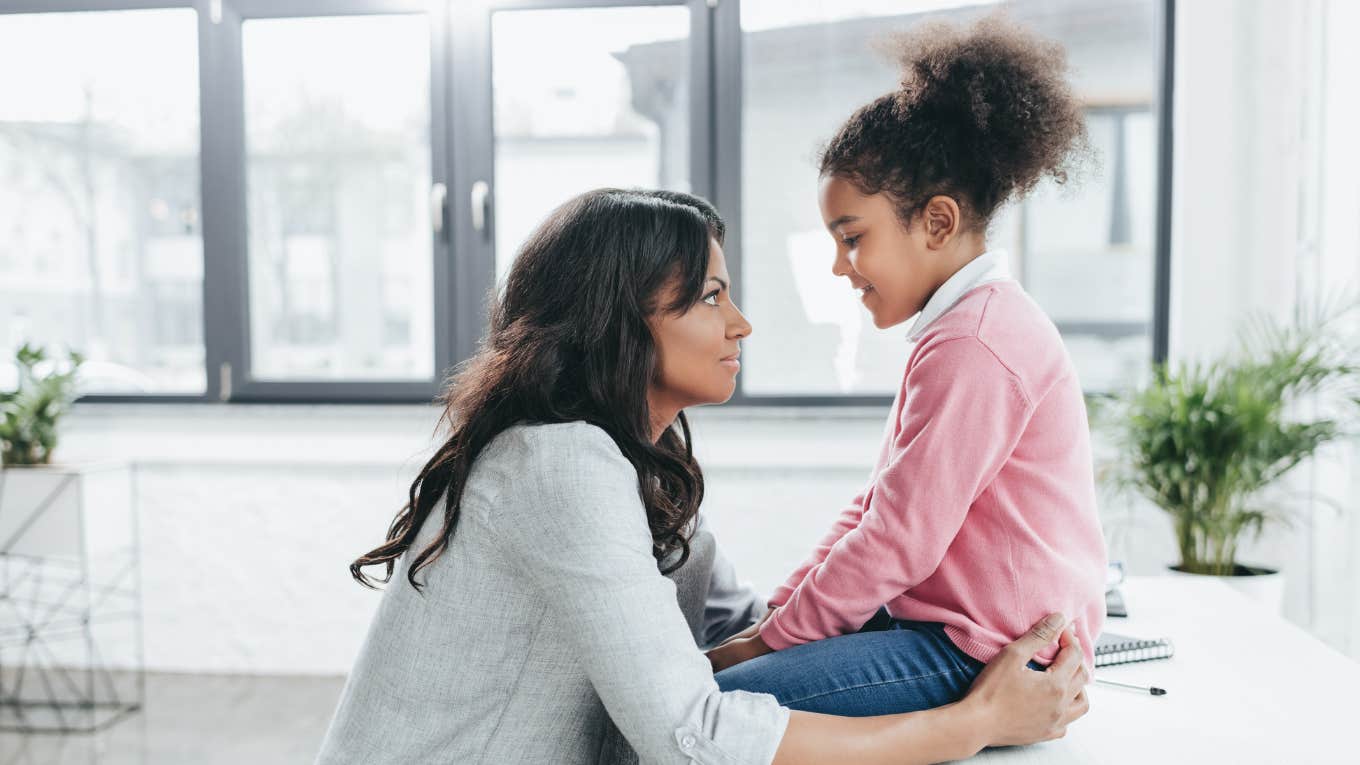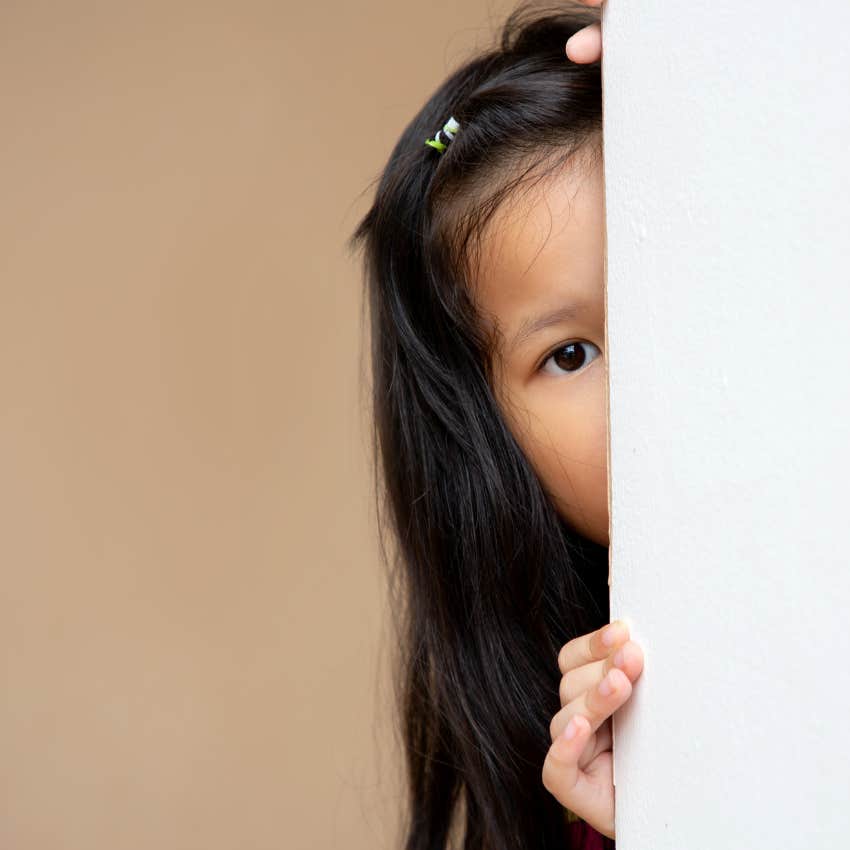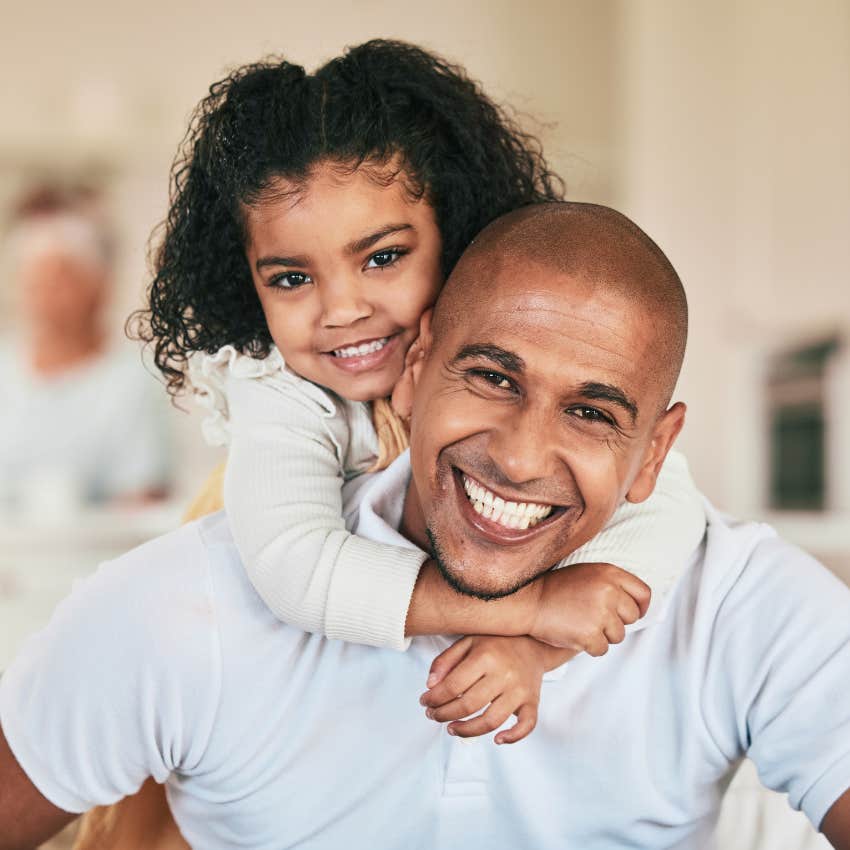Psychologist Explains Why Parents Shouldn't Offer Comfort Or Compliments When Kids Feel Unsure Of Themselves
It may sound counterintuitive, but her recommendation will do more for your kid than any compliment could.
 LightField Studios / Shutterstock
LightField Studios / Shutterstock It's a natural reflex with nearly everyone in our lives — when they feel uncertain or unconfident, we immediately try to counterprogram their anxiety with compliments to comfort them.
But psychologist Dr. Becky Kennedy says that when it comes to kids, there's a better way.
Dr. Becky says parents shouldn't offer comfort or compliments when kids feel unsure of themselves.
Kennedy, a clinical psychologist, has become known as "the Millennial parenting whisperer" for the game-changing, often counterintuitive parenting advice she shares in her book "Good Inside" and the popular podcast of the same name.
If you know someone who's a gentle parenting devotee or all about using attachment theory with their kids, they're probably a Dr. Becky fan.
Recently, Kennedy posted a take on a problem that comes up for every kid at one point or another: feeling left out, not good enough, or not on the same level as the other kids.
Kennedy explained that situations like this are a golden opportunity to teach kids confidence and resilience as long as you can resist the temptation to comfort them in those moments.
Kennedy says compliments and comfort when kids feel unsure of themselves can actually lower their self-confidence.
I don't know about you, but whenever one of my nieces or nephews has a momentary crisis of confidence, I instantly flash back to my own childhood and how anxious and withdrawn those experiences made me.
It's instinctual to then try to counterprogram them with all the ways you think they're special and perfect to make sure their confidence isn't rattled. But Kennedy says she doesn't think that's actually what's at the heart of the matter, and that approach is actually a missed opportunity for kids.
"Have a child that’s slow to join the group? That clings to you at activities and drop-offs?" she wrote in her video's caption. "We often think that our child isn’t confident in moments like these… but I don’t think that’s true at all."
 Photo: Wor Jun / Shutterstock
Photo: Wor Jun / Shutterstock
In fact, Kennedy says it's actually the opposite. "When your kid says something to you like, 'I'm the only one in my class who can't read,' or 'I'm the worst soccer player on my team,' and we say something back to them to try to make them feel better, it actually lowers their self-confidence."
Kennedy says that counterintuitive notion is because from a psychological perspective, confidence "isn't feeling good about yourself."
Dr. Becky says confidence is actually about trusting yourself. Validating kids' feelings is more helpful than comfort and compliments.
"Confidence is actually self-trust," she explains, and what is key to kids learning to trust themselves is validating their feelings, even when they're not necessarily accurate. (This is why gentle parenting includes validating kids' emotions even when they're misbehaving, for instance.)
Kennedy suggests responding instead with statements like, "I'm so glad you're sharing that with me. That feels really tricky. Tell me more. Keep going."
Kennedy also points out that as kids get older, "we usually define confidence as trusting yourself and not following the crowd." But when they're little, "we often have the exact opposite definition," wondering why they won't be a joiner and want to stay on the sidelines.
 Photo: PeopleImages.com - Yuri A / Shutterstock
Photo: PeopleImages.com - Yuri A / Shutterstock
The point isn't to keep the kid on the sidelines, but rather to validate how scared or nervous they might be feeling so that they can then feel safe enough to venture off it. And since kids are learning how to approach the world by watching us, our responses to these moments set the tone.
As Kennedy explains it, "When we show our kids that we're not scared of their experiences, they learn not to be scared of those same experiences. And that is what builds lifelong confidence."
John Sundholm is a news and entertainment writer who covers pop culture, social justice, and human interest topics.

